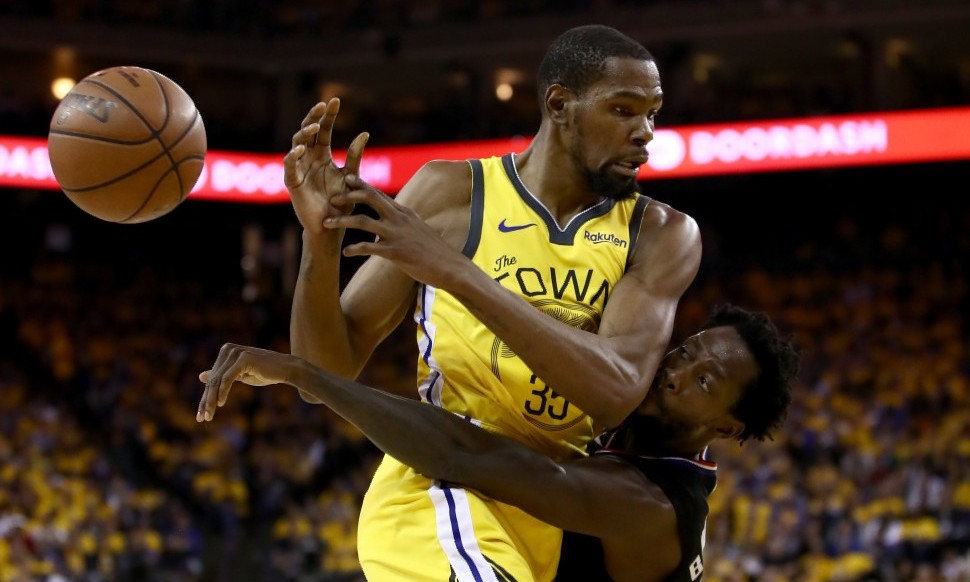
The Warriors and Clippers head to Los Angeles shockingly tied at 1-1 in the series after the Clippers completed the biggest comeback in NBA postseason history in Game 2, erasing a 31-point second half deficit to stun the defending champs.
The Warriors losing in that fashion, particularly with how their stars went cold in the fourth quarter offensively, has led to plenty of discussion. Kevin Durant has been the focus of much of that after he fouled out late in the fourth quarter having attempted only eight shots (scoring 21 points on those eight attempts and 12 free throws) while facing Patrick Beverley most of the night.
Beverley and Durant were both ejected in Game 1 after receiving double technicals and Beverley took the challenge of defending the man many believe to be the league’s best scorer on Monday. Tony Allen has explained how Beverley crowding Durant can be effective, and many have pointed to the lack of shots as evidence he got Durant off his game, but on Wednesday, Durant explained how it’s the Clippers total approach that leads him to be more patient — and the Warriors egalitarian offensive philosophy that dictates he pass the ball rather than force up shots over a smaller defender.
Kevin Durant goes extremely in depth on the Clippers style of defense, the overhelp, why he won’t get caught up in a 1-on-1 battle with Patrick Beverley pic.twitter.com/nOdmTDY4yi
— Anthony Slater (@anthonyVslater) April 17, 2019
It’s a pretty terrific breakdown from Durant, who isn’t always the most forthcoming in media scrums, but given that he’s requested to just talk basketball and not his impending free agency, seemed pretty willing to offer a detailed breakdown of what he’s seeing from L.A. and why he’s playing the way he is.
Now, Durant saying he won’t force anything and doesn’t plan on suddenly shooting a bunch of shots runs a bit counter to what Steve Kerr says he hopes to see from his star in Game 3.
Steve Kerr was adamant that Kevin Durant’s going to bounce back in Game 3. Called him “one of the best players in the world” and said he’d like to see Durant get up 20-30 shots tomorrow.
— Connor Letourneau (@Con_Chron) April 17, 2019
It will be interesting to see where the middle ground is between 20-30 shots and his eight from Game 2 is, but Durant clearly understands what the Clippers are trying to do to him and is more than willing to make the smart basketball play when they bring extra attention his way.
For much of Game 2, that was working. The Warriors had 100 points in the third quarter without anyone on the team having to jack up a ton of shots, and it looked like it was going to be a classic team-oriented domination from Golden State. The end result was obviously a collapse, facilitated by a lack of defensive effort and an inability to regain any offensive rhythm after it appeared they went on cruise control in the mid-third quarter.
That performance could wake them up and lead to a pedal down effort in Game 3, or it could be a signal of larger issues this team faces. We’ll find out on Thursday night which is the case, but don’t expect Durant to suddenly force up 30 shots if the defense won’t allow it.






